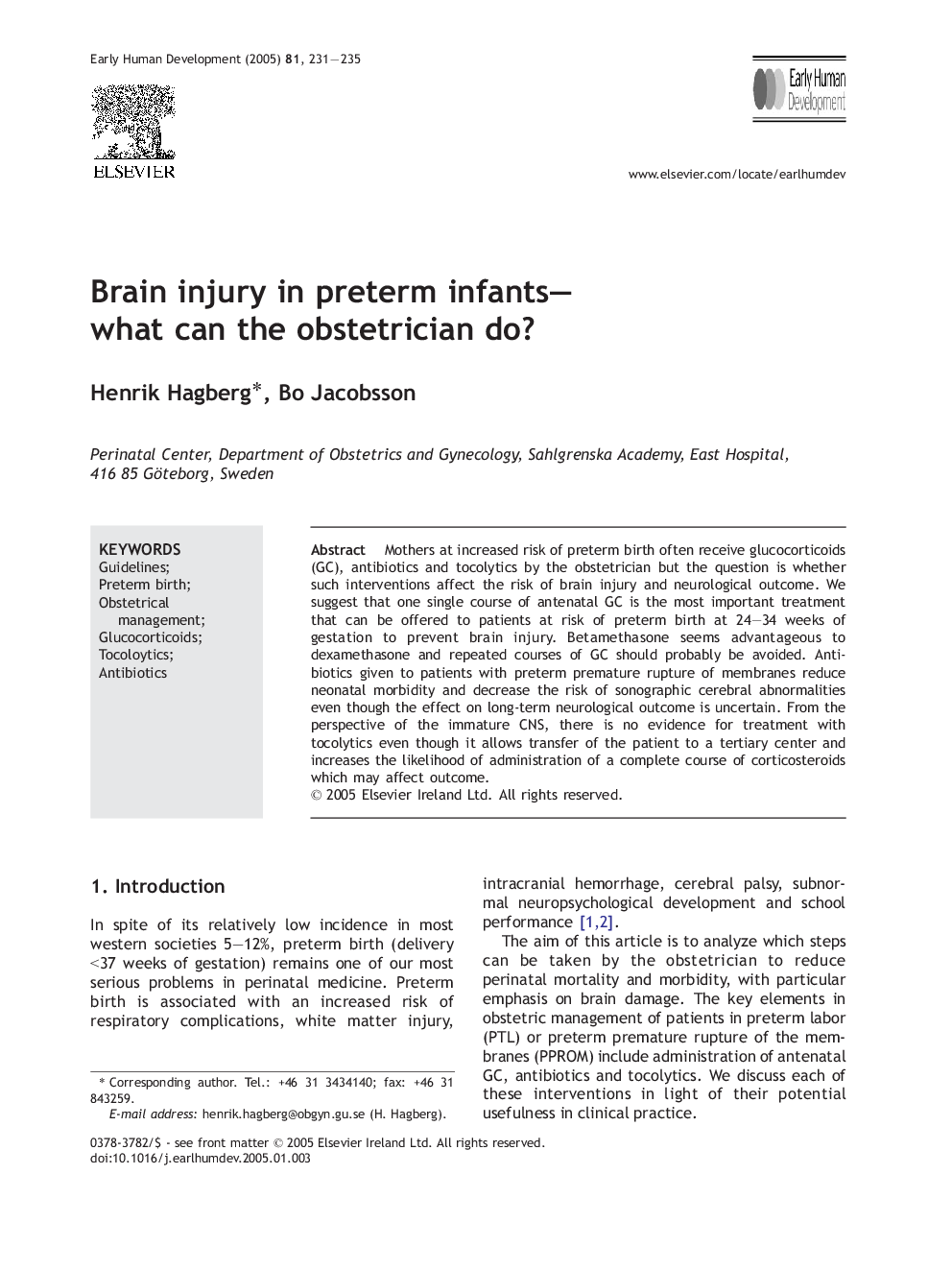| Article ID | Journal | Published Year | Pages | File Type |
|---|---|---|---|---|
| 9318642 | Early Human Development | 2005 | 5 Pages |
Abstract
Mothers at increased risk of preterm birth often receive glucocorticoids (GC), antibiotics and tocolytics by the obstetrician but the question is whether such interventions affect the risk of brain injury and neurological outcome. We suggest that one single course of antenatal GC is the most important treatment that can be offered to patients at risk of preterm birth at 24-34 weeks of gestation to prevent brain injury. Betamethasone seems advantageous to dexamethasone and repeated courses of GC should probably be avoided. Antibiotics given to patients with preterm premature rupture of membranes reduce neonatal morbidity and decrease the risk of sonographic cerebral abnormalities even though the effect on long-term neurological outcome is uncertain. From the perspective of the immature CNS, there is no evidence for treatment with tocolytics even though it allows transfer of the patient to a tertiary center and increases the likelihood of administration of a complete course of corticosteroids which may affect outcome.
Related Topics
Health Sciences
Medicine and Dentistry
Obstetrics, Gynecology and Women's Health
Authors
Henrik Hagberg, Bo Jacobsson,
